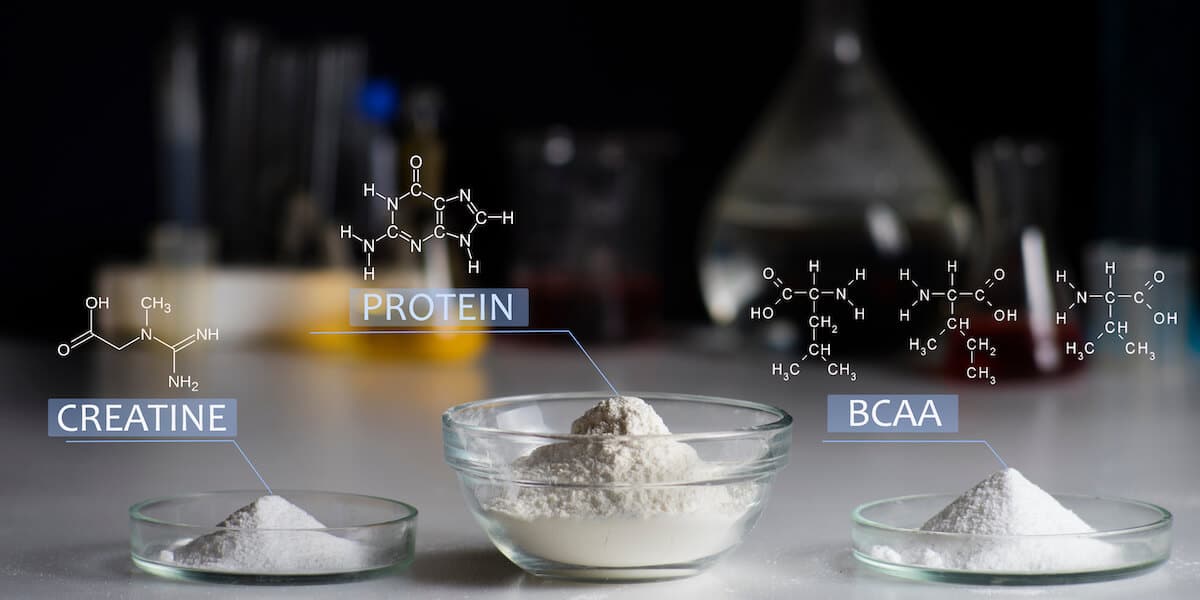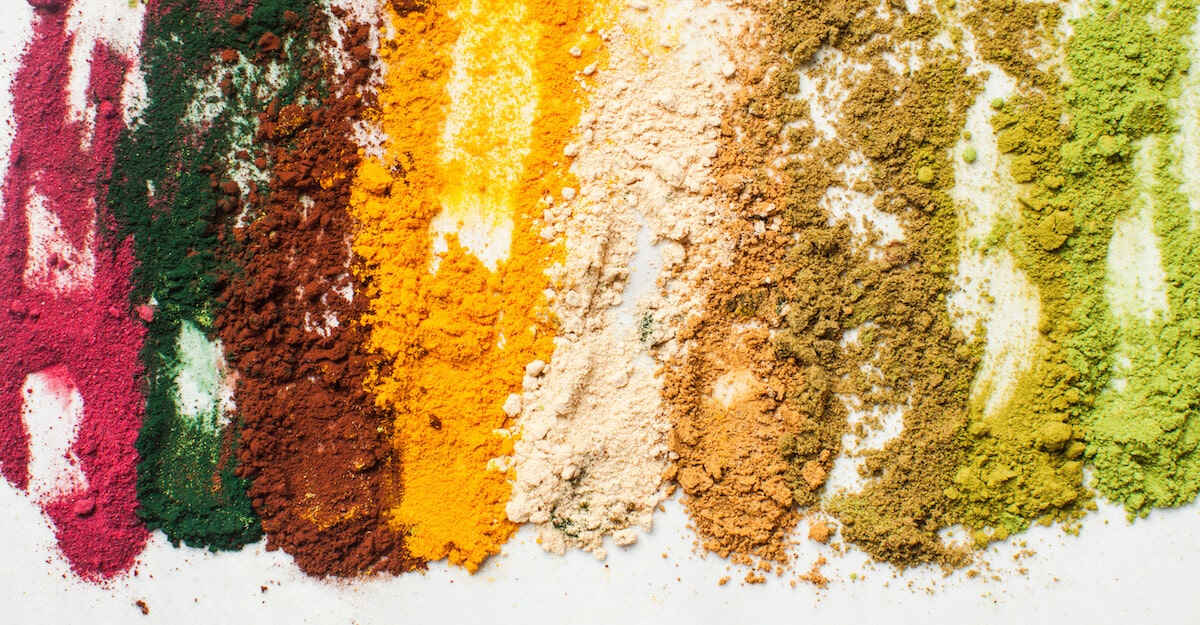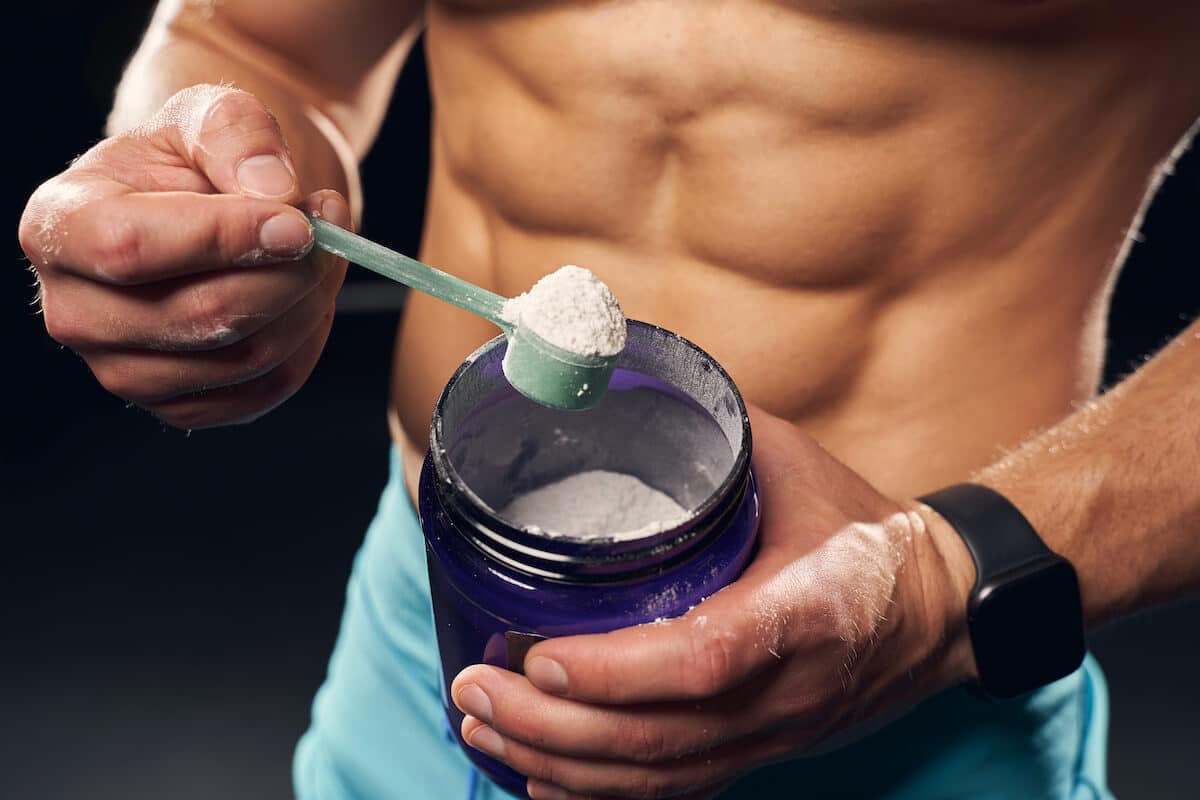
31 Jan Powdered Supplements: Different Types, Benefits, and Functions
Powdered supplements are one of the most common options you’ll find at health and vitamin retailers. These supplements are usually designed to mix with water or milk so it’s easier to add them to your diet. You’ll find options ranging from powdered veggies to isolated proteins, each made to meet specific dietary needs.
This guide will explore different types of powdered supplements, how they’re made, potential benefits, and what to look for when choosing one.
What Are Powdered Supplements?
Powdered supplements refer to a variety of nutritional supplements sold in powdered form. Some contain a single nutrient or ingredient, while others feature a blend of superfoods, vitamins, and proteins. Aside from supplements in pill form, powdered options are among the most common form of dietary supplements.
While each type requires slightly different processes, most powdered supplements are made by isolating and dehydrating the specific nutrient or ingredient needed for the formula. Manufacturers can then grind the dried nutrient or ingredient into powdered form. Next, the manufacturer can add other ingredients to enhance its nutritional qualities, improve taste, preserve freshness, or make it easier to mix with water or other liquids.
Types of Powdered Supplements

You’ll see many types of powdered supplements, each of which is designed to meet different dietary needs. Here are some of the most common options.
Protein Powders
Made popular by bodybuilders and athletes, protein supplements are probably the most well-known type of powdered supplement, and they can offer benefits to almost everyone. There are several types of protein powder, some of which include:
- Whey protein powder
- Casein protein powder
- Pea protein powder
- Soy protein powder
- Other protein powders (e.g., brown rice, egg white, or hemp seed powder)
Protein is a macronutrient required for the human body to properly function. It breaks down into amino acids, which your body uses to build, repair, and maintain muscles, organs, bones, and tissues.
Depending on your activity level, you could need anywhere from 0.8 grams to over 2 grams of protein per kilogram of body weight (that’s 0.36 to 0.91+ grams per pound). For example, a 200-pound bodybuilder may need around 200 grams of protein every day.
If you’re struggling to meet your protein needs with whole foods in your diet, protein powders can help. They allow you to conveniently supplement your protein intake throughout the day to ensure your body gets enough of this vital nutrient.
Collagen Supplements
Collagen is a protein found in your connective tissues, organs, and bones, and it’s a popular powdered supplement. However, while collagen is a protein, it’s often categorized separately from protein supplements.
Collagen supplements are designed to support overall wellness, ranging from skin and joint health to muscular strength. These supplements give your body more access to collagen peptides, polypeptides, and proteins, which help maintain skin, bones, muscles, and joints.
Your body produces less collagen as you age, so it’s a popular supplement for those experiencing age-related joint pain or loss of mobility. That said, collagen is suitable for people of all ages and is often used alongside other protein supplements.
Vitamin, Nutrient, and Amino Acid Supplements
You’ll find many powdered supplements that provide vitamins, nutrients, and amino acids. Healthcare professionals and registered dietitians may recommend these supplements to address specific health concerns.
- Electrolytes: Electrolytes refer to a range of essential minerals like potassium, magnesium, calcium, and sodium. They may improve hydration, reduce muscle cramps, and replace salt lost through sweating during long, intense workouts.
- Vitamin C: This antioxidant supports immune system function. It also aids in protein synthesis, which can help build strong muscles, and may help reduce blood pressure in high doses.
- BCAAs: Branched-chain amino acids, or BCAAs, refer to three of the nine essential amino acids — leucine, isoleucine, and valine. These amino acids are “essential” because your body can’t make them and must receive them from your diet. The branched structure of BCAAs has been shown to stimulate muscle protein synthesis, with aids in muscle growth.
- Leucine: Leucine is one of the BCAAs, and it’s the most effective of the three for triggering muscle protein synthesis. Athletes may use it to support muscle growth and maintenance.
- Creatine: Creatine is an amino acid primarily found in your body’s muscles — when taken as a supplement, it can increase strength and muscle mass.
Meal Replacement Supplements
Some powdered supplements are designed to replace entire meals instead of providing a specific nutrient. To do this, they usually contain the three vital nutrients — proteins, carbohydrates (carbs), and fats. These support the body and provide the caloric equivalent of a meal.
A meal replacement supplement allows you to meet your caloric and nutritional needs with a shake. This can be helpful if you don’t have time to eat a meal of whole foods or you don’t have the appetite after a workout.
Pre- and Post-Workout Supplements
Pre- and post-workout supplements feature specific formulations to support your body before and after a workout. For example, pre-workout supplements often include ingredients designed to provide energy and reduce fatigue. Post-workout supplements often contain ingredients that support muscle protein synthesis and energy recovery.
Probiotics and Prebiotics
Probiotics and prebiotics are supplements that can help support a healthy immune system and digestive tract. Probiotics are a type of good bacteria that assist your body in digesting and absorbing nutrients while prebiotics provide food for the probiotics.
Weight Loss Supplements
You’ll find a variety of weight loss supplements designed to support fat loss. While some supplements marketed for weight loss may make promises and claim to produce fast results, not all are backed by science.
However, there are some science-backed ingredients, such as:
- Green tea: Studies suggest that green tea can help you burn more fat after exercise, and it’s a popular ingredient in most powdered supplements designed for weight loss.
- Caffeine: Caffeine, often from coffee beans or green tea, helps improve fat-burning and exercise performance, according to several studies. It’s usually included in weight loss and pre-workout supplements.
Superfood and Greens Powders

Superfood and greens powders are often used to provide high doses of antioxidants and other nutrients. Common ingredients in greens and superfood powders include:
- DGLVs: Dark green leafy vegetables, or DGLVs, include foods like kale, spinach, turnip greens, Swiss chard, and collard greens. Studies have shown several health benefits from eating these leafy greens, such as improved heart health and reduced risk of some types of cancer.
- Turmeric: You may have turmeric in your spice cabinet, but it’s also used in powdered supplements. It’s a bright orange spice that may help prevent or treat health issues ranging from depression to cancer.
- Wheatgrass: Wheatgrass contains eight of the nine essential amino acids and antioxidants like vitamin C. It may help lower blood sugar and cholesterol levels in addition to potentially lowering the risk for some types of cancer.
Do You Need Powdered Supplements?
Powdered supplements can support muscle growth and add nutrients to your diet. But whether you need them — and which supplements you need — depends on your current whole food intake, athletic goals, and health.
We recommend seeking medical advice from your healthcare provider or a registered dietitian before adding any dietary supplement to your diet.
How to Find the Best Powdered Supplements
Finding high-quality options is essential regardless of which powdered supplements you want to add to your diet. Here are some things to consider.
- Dietary intolerances or allergies: If you follow a sugar-, lactose-, or gluten-free diet, look for supplements that will adhere to your restrictions. You’ll have access to a wide range of options, such as dairy-free protein powder or those with no added sugars.
- Bioavailability: The bioavailability of a nutrient or food refers to your body’s ability to effectively absorb it for delivery to the target system (e.g., muscle protein synthesis). Look for Ingredient Optimized supplements and ingredients to ensure you’re getting your money’s worth.
- Non-GMO: Supplements containing genetically-modified organisms, or GMOs, may present safety risks and side effects. Look for non-GMO supplements to ensure you’re getting high-quality ingredients.
- FDA-Approved: Supplements approved by the Food and Drug Administration, or the FDA, have been reviewed and approved as safe for consumption, with benefits that outweigh any risks. Without FDA approval, you can’t be sure if the supplement you’re taking is healthy — for example, it may contain high levels of heavy metals that are detrimental to your health.
- Organic, grass-fed dairy: Dairy products made from cows who graze on grass pastures may offer improved health benefits. These products are often also certified as organic, which verifies that the cows weren’t treated with antibiotics or growth hormones.
Improve Your Diet With Powdered Supplements

If you’d like to use powdered supplements to improve your diet, support your health, and get more from your workouts, start with high-quality products. Remember to look for Ingredient Optimized supplements to guarantee higher protein and nutrient bioavailability in every scoop.
Products like ioPea and ioWhey are science-backed, and you can purchase them from several io Brand partners. Here are some high-quality supplements to consider:
- Collagen supplement: Glaxon Wonder Collagen Protein
- Meal replacement: Kaged Muscle Clean Meal
- Plant-based protein: Kaged Muscle Plantein; MyProtein THE ioPea
- Protein powder: Performix ioWhey Protein


